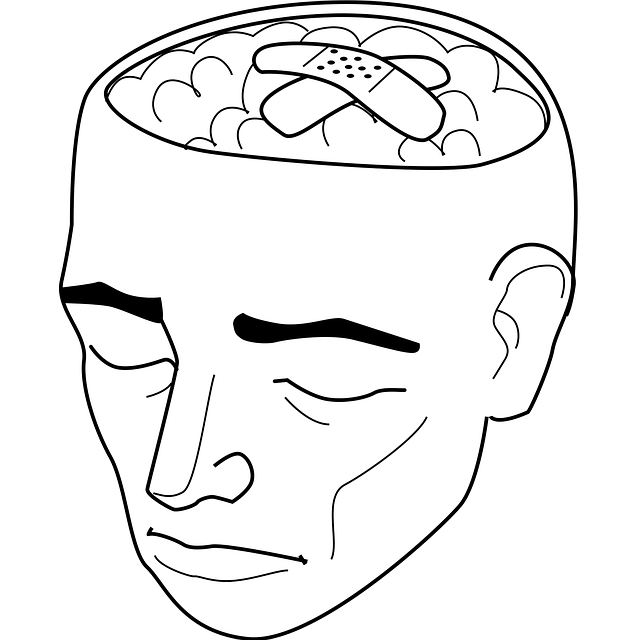In a world grappling with stress and anxiety, Parker Alcohol Abuse Therapy (PAAT) is revolutionizing mental wellness support through holistic coaching programs. These culturally sensitive initiatives prevent burnout and alleviate anxiety using evidence-based techniques like CBT and motivational interviewing. PAAT's comprehensive approach combines skills for conflict resolution and resilience building, empowering individuals to overcome challenges and make healthier choices. By making coaching accessible via online sessions and group coaching, and integrating it into healthcare systems, PAAT removes barriers and fosters cultural competency among providers. Continuous improvement is driven by data-driven assessments and feedback from clients, ensuring the program enhances emotional well-being and supports long-term mental health.
Mental wellness coaching programs are gaining traction as essential tools for promoting holistic well-being. This article explores the growing need for such initiatives, highlighting the impact of mental health issues in today’s fast-paced world. We delve into designing effective models, drawing inspiration from the proven Parker Alcohol Abuse Therapy approach, which emphasizes personalized support and accessibility. Additionally, we discuss strategies for implementing and measuring success, emphasizing continuous improvement in mental health coaching practices.
- Understanding the Need for Mental Wellness Coaching Programs
- Designing Effective Coaching Models: The Parker Alcohol Abuse Therapy Approach
- Implementing and Promoting Accessibility of Coaching Services
- Measuring Success and Continuous Improvement in Mental Health Coaching
Understanding the Need for Mental Wellness Coaching Programs

In today’s fast-paced world, mental wellness is more critical than ever before. The demands of modern life often lead to heightened stress levels and increased anxiety, impacting individuals across various demographics. This has prompted a growing recognition of the need for accessible and effective mental wellness support systems. Parker Alcohol Abuse Therapy highlights an emerging trend in healthcare: coaching programs designed to promote holistic mental health.
These coaching initiatives are particularly vital in addressing the diverse needs of a global population. Cultural Sensitivity in Mental Healthcare Practice plays a crucial role, ensuring that strategies are tailored to individual backgrounds and experiences. By offering personalized guidance, these programs aim to prevent Burnout Prevention while providing Anxiety Relief. Through evidence-based techniques, mental wellness coaches empower individuals to develop resilience, enhance coping mechanisms, and ultimately improve their overall quality of life.
Designing Effective Coaching Models: The Parker Alcohol Abuse Therapy Approach

The Parker Alcohol Abuse Therapy Approach offers a valuable framework for designing effective mental wellness coaching models. This evidence-based method focuses on empowering individuals to overcome challenges and achieve lasting change. By utilizing a combination of therapeutic techniques, such as Cognitive Behavioral Therapy (CBT) and motivational interviewing, coaches can help clients identify and modify destructive behaviors, enhancing their ability to manage stress and make positive choices.
Integrating Conflict Resolution Techniques and Resilience Building into coaching sessions is crucial for fostering growth. The Parker Approach emphasizes teaching individuals how to navigate difficult situations with clarity and resilience, utilizing Mind Over Matter principles to reframe negative thoughts and cultivate a mindset conducive to mental wellness. This holistic approach ensures that clients develop practical tools and coping mechanisms tailored to their unique needs, promoting sustained recovery and overall well-being.
Implementing and Promoting Accessibility of Coaching Services

Making mental wellness coaching services accessible to all is a key aspect of promoting overall well-being in society. This involves removing barriers that might prevent individuals from seeking support, such as cost, location, or stigma associated with mental health issues. One effective strategy is to offer diverse delivery methods, including online sessions and group coaching, which cater to different preferences and circumstances. By implementing digital platforms, coaches can reach a broader audience, especially those in remote areas or with limited mobility.
Moreover, integrating these services into existing healthcare systems can enhance accessibility. This collaboration ensures that mental wellness coaching is viewed as an integral part of comprehensive care, alongside medical treatments and counseling. For instance, healthcare providers can incorporate coaching recommendations into patient discharge plans or refer clients to coaches as a continuation of care. Such systemic support, inspired by initiatives like Parker Alcohol Abuse Therapy, can significantly contribute to effective risk management planning for mental health professionals while promoting social skills training and cultural competency among healthcare providers.
Measuring Success and Continuous Improvement in Mental Health Coaching

Measuring success and fostering continuous improvement are paramount aspects of effective mental wellness coaching programs, including those offered by Parker Alcohol Abuse Therapy. To gauge progress, coaches should employ a multifaceted approach that incorporates both qualitative and quantitative data. This might include pre-and post-program assessments to track client symptoms, life satisfaction scores, and coping mechanisms. Regular feedback sessions allow clients to voice their experiences and provide insights into what’s working and what needs adjustment.
By combining these methods, coaches can identify specific areas of impact, such as enhanced resilience building or confidence boosting techniques. This data-driven approach enables the refinement of coaching strategies, ensuring that the program consistently promotes emotional well-being and supports clients’ long-term mental health.
Mental wellness coaching programs, like the Parker Alcohol Abuse Therapy approach discussed, offer a promising path towards improving mental health. By designing effective models, promoting accessibility, and measuring success, we can ensure these programs reach those who need them most. Embracing innovative strategies and continuous improvement is key to fostering a healthier, more resilient society.













